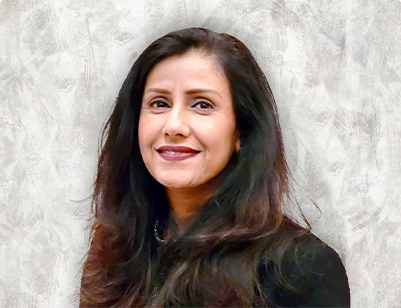Navigating the complexities of immigration law can be overwhelming. At BCA Law Firm, our dedicated team of experts is here to guide you every step of the way.
Don’t face this journey alone – contact us today for a consultation and let us turn your immigration goals into reality.
- Mon - Fri 09:00-17:00

Falsely Claiming to be a Citizen
A false claim to U.S. citizenship, even if done unintentionally may lead to severe legal consequences down the road. It can jeopardize a lawful permanent resident’s ability to naturalize and it can even lead to removal from the country or deportation in some cases.
False claims of citizenship are heavily punished in the United States and the Immigration and Nationality Act imposes a permanent ban on entry to individuals who falsely claimed to be citizens.
False claims to U.S. citizenship can happen in a variety of different ways. For example, individuals filing the I-9 form for employment verification can check the citizenship box in order to obtain a job. Students filing loan application forms can also claim to be a citizen in order to receive student financial aid. In certain cases, it can be done by mistake but there are cases where individuals are tricked into signing certain petitions or voter registration forms. These scenarios can lead to the U.S. government alleging that you falsely claimed to be a citizen in order to receive a certain benefit.
A false claim to citizenship is a grave matter and can have dire consequences. The law states that immigrants that claim to be citizens are to be barred from obtaining a green card, even if married to a U.S. citizen. It’s also important to note that there is no waiver available to waive a false claim to citizenship status.
Besides becoming ineligible for a green card or naturalization, you can also be criminally charged, with penalties ranging from fines to imprisonment, depending on your case. If you are ever charged due to a false claim, it’s a good idea to contact our criminal immigration lawyer immediately to start preparing your defense.
Generally speaking, there is no waiver after making a false claim to being a citizen but there are certain exceptions and defense avenues. For example, if the claim took place before 1996, you may be granted a waiver. If you are the child of a U.S. citizen and resided within the country before the age of 16, you may also have a waiver. You can also argue that you corrected your mistake in a timely manner and did not have any benefit from the false claim or that you were too young to understand the consequences of it when it was made.
Statutes on False Claims to Citizenship
False claims of citizenship can be found in the Immigration and Nationality Act under Article 212. This states that any immigrant who falsely represents themselves as being a citizen is inadmissible. This statute also acts as a permanent bar on admission. Article 237 of the INA (Immigration and Nationality Act) also states that these individuals are also deportable.
Apart from the consequences related to immigration, these individuals may face criminal or civil punishment such as being charged with fraud or criminally convicted for falsely representing U.S. citizenship. Criminal fines may be imposed or imprisonment for up to three years.
How Bhavya Chaudhary And Associates Can Help
A false claim to U.S. citizenship is an extremely serious matter that can have dire consequences on your road to citizenship. When in doubt, it’s always better to consult with an experienced immigration attorney.
Schedule a consultation today! We are here to answer all of your sensitive immigration questions!
Before a USCIS officer may decide that an individual is inadmissible due to a false claim to US citizenship, they must first determine if the following situations are met:
The individual did indeed claim to be a citizen.
The claim was false.
The claim was made to gain certain benefits under state, federal or INA law.
The United States Citizenship and Immigration Services provides officers with a Policy Manual that includes a six step process to determine if an individual is indeed inadmissible in the eyes of the law. Here is a brief overview of the steps:
The false claim does not need to be under oath or made in the presence of an USCIS official. The claim can be made in the presence of any entity, private person or government official. For example, it can be made during oral interviews, on written applications, when registering to vote or on the I-9 employment form.
If the claim was made before the 30th of September 1996, then the inadmissibility ground does not apply due to this particular reason, but the individual may still be found inadmissible on fraud or willful misrepresentation grounds.
The inadmissibility ground applies if the individual made a false claim to citizenship in order to achieve a specific benefit or response. The claim must be related directly to the benefit or purpose. In most cases, individuals will make such claims in order to avoid removal proceedings or in order to avoid negative legal outcomes. In this case, the benefits or purpose can include obtaining a U.S. passport, getting a particular job or entering into the United States under the false pretense of being a citizen.
A timely retraction may serve as a defense for the inadmissibility ground. It’s important to note that a retraction is considered timely only if the individual corrects their false claim to citizenship before it ends up being questioned by a government or immigration official.
Two categories of non-citizens are exempt from inadmissibility based on false claims:
Non-citizens who lived in the U.S. since 1972 and are able to apply for lawful permanent resident status.
Special immigrant juveniles who are seeking adjustment of status.
In 2000 a new law was passed by Congress to retroactively exempt certain categories of non-citizens. These are the requirements:
The claim was made on or prior to September 30, 1996.
Both parents of the non-citizen were citizens at the time of the claim.
The non-citizen resided in the U.S. prior to turning 16.
The non-citizen made the false claim while believing that he or she was a citizen.
Waivers of inadmissibility are available for non-immigrants seeking admission after a false claim to citizenship. Apart from that, individuals seeking adjustment of status and refugees may be eligible for a waiver. In most cases it’s best to contact an experienced immigration lawyer to see if you are eligible for a waiver.

